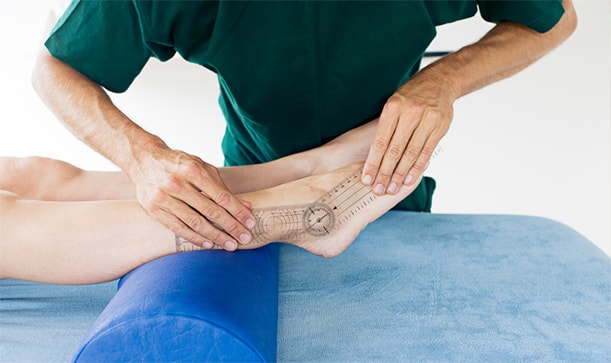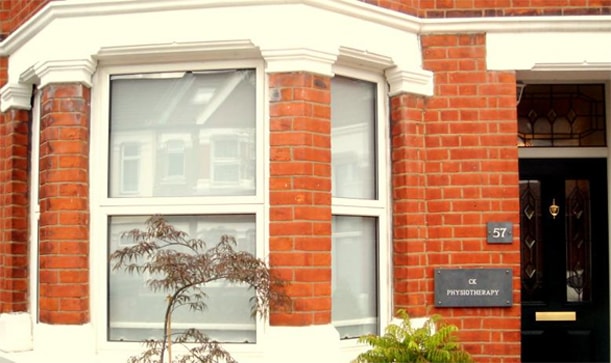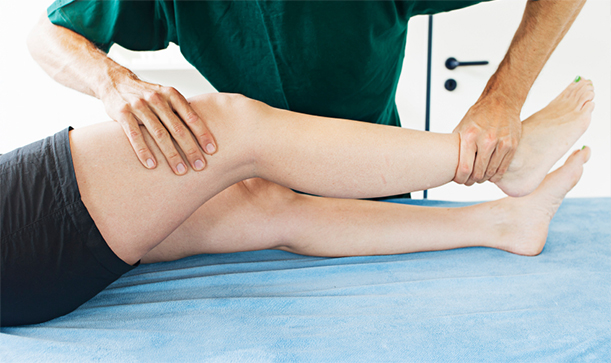CK Physiotherapy
AREAS COVERED
W7, W5, W13, Ealing, West London
57 Elthorne Avenue
Hanwell, W7 2JY
T: 020 8566 4113
M: 079 572 46185
E: info@ckphysio.co.uk
Location / Parking
We are situated in Hanwell, between Boston Manor Road and Northfields Avenue, south of the Uxbridge Road.57 Elthorne Avenue
Hanwell, W7 2JY
There are parking restrictions Mon - Fri 9-10am and 2-3pm. If you need a permit during this time please inform your therapist when you arrive. There are no parking restrictions at other times.
Opening Times
Please phone the number above during working hours to make an appointment. Our reception service will be happy to book your session.
London Underground / Bus Services
London Underground
10 min. walk from Boston Manor Tube Station.
15 min. walk from Northfields Tube Station.
Bus Service
E8, E3, E2, 207, 607, 83
Request Call Back
Our Blog
Chronic Back Pain and How Physiotherapists Help on Treatment
By: BryanKelly (Psst, View author in Google Plus) Date: Feb 21st, 2022
38% of UK adults are in pain daily
That’s a staggering percentage of people battling pain.
What's more astounding though, as stated by St John & St Elizabeth Hospital in their back care awareness information, is back pain affects 51-90% of people at some point in their lifetime.
We’ve all felt that twinge when our back decides to go, your world literally crumbles.
For most, it's usually not too severe. With rest and sufficient back pain treatment, it can rectify itself in a few days.
But what happens when it isn’t getting better, and the pain starts to impact your day-to-day activities?
Today we will be discussing back pain treatment and:
-
When does back pain become chronic?
-
When you may need to seek professional back pain treatment
-
Physiotherapy treatment for chronic back pain treatment
-
How physiotherapy treatment can aid pain management
When does back pain become chronic?
Back pain can present itself in many ways, with varying intensities.
Whether a dull pain, a constant ache, or sharp shooting pains, they all have one thing in common - they are very painful and can be debilitating.
The causes of back pain can be anything from injuries to medical conditions such as arthritis or osteoporosis. In most cases, the cause is something as simple as a pulled muscle.
But how do you know if you have chronic back pain?
It can be difficult to know whether the pain is chronic or acute, below is a summary to determine which pain you may be experiencing.
Acute back pain: short term pain that usually persists for a few days and clears up with rest and self-administered back pain treatment. Effects of back pain can be felt up to 12weeks.
Chronic back pain: defined as pain that continues longer than 12 weeks after the initial injury or/and self-administered back pain treatment. Untreated, the effects of chronic back pain can be felt for years.
Low Back Pain Fact Sheet | National Institute of Neurological Disorders and Stroke (nih.gov)
Common back pain causes:
(but not limited to)
-
Poor posture in standing, or slouching in chairs for long periods of time
-
Lack of mobility and spine manipulation/flexibility
-
Muscle tightness, spasm, or inflammation
-
Sudden or unusual movements from accidents or sports injuries
-
Heavy lifting or strenuous exercise
-
Stress or weight imbalance
Due to the causes above, if you notice any of the following symptoms, it's recommended to seek professional medical advice for your back pain treatment.
Back pain symptoms of concern:
(but not limited to)
-
Pain lasts for more than 72 hours
-
Numbness or tingling
-
Pain spreads to other areas of the body or limbs
-
Difficulty sitting, sleeping or daily activities are affected
There are many back pain treatment methods you can administer yourself. But it’s important that if your symptoms don’t lessen, seek professional treatment to prevent the need for chronic back pain treatment.
There are also other causes and conditions that can cause back pain, which physiotherapy treatment is recommended.
-
Arthritis
-
Prolapsed (slipped) disc
-
Sciatica
Back pain - Causes - NHS (www.nhs.uk)
What is the best back pain treatment?
When looking at preventative measures for back pain, there are many different things you can do from improving your posture to making sure you exercise on a regular basis.
Yet when you’re in the middle of a painful episode, you need instant back pain treatment solutions that work!
Barring surgery, there are two main ways to treat acute back pain: medication and physical therapy.
Physical therapy: Involves the use of exercises and stretches to help relieve back pain caused by injury, muscle spasms or inflammation.
Medications: Can be used for chronic or acute back pain relief but should only be taken when prescribed by a doctor.
In the interim, to soothe your suffering, you can try these self-administered back pain treatment options.
-
Anti-inflammatory gel or tablets
-
Ice/heat packs
-
Gentle stretches
-
Rest from activities and lifting
There’s no particular method to suit all, as back pain treatment is unique to you.
Once the above options have been exhausted, if pain persists it may be time to look for physiotherapy treatment.
Diagnosis for back pain and effective physiotherapy treatment
Physiotherapists are experts in the assessment, diagnosis, and treatment of musculoskeletal disorders.
For chronic back pain treatment, physiotherapy treatment requires the use of a variety of techniques to address the problem.
-
Assess your current condition and environment
-
Test movement and pain tolerance
-
Check nerve and muscle reaction
-
Medical and family history questionnaire
-
Recommend appropriate treatments
Lower Back Pain | Types, Causes, Treatment & Living With Back Pain | Patient
Usually localised to the lower back, buttocks, hips, and upper thighs, your back pain may also radiate to the legs and feet.
Having back pain can make it hard to do simple things like walking, sitting, standing, or sleeping.
To deliver effective back pain treatment our physiotherapists are trained in different modalities that include manual therapy techniques such as:
-
Joint mobilizations and manipulations
-
Therapeutic exercise programs
-
Acupuncture
-
Electrotherapy modalities (electrical stimulation and interferential current therapy)
-
Soft tissue techniques (massage therapy and myofascial release techniques)
-
Rehabilitative equipment prescription
If you are suffering from chronic back pain, physiotherapy treatment is highly recommended to enable you to manage pain, regain range of motion and function, plus reclaim your independence.
Some have also found relief from combining yoga and physiotherapy as a complementary back pain treatment relieving pain and enhancing overall well-being.
It’s not usually common practice but in certain situations tests such as X-rays, MRI scans or blood tests may be suggested.
Let us help you get moving
You do not have to suffer in silence!
If you’re in agony or distress, please contact us to receive advice and guidance on the most appropriate back pain treatment for you.
For your ease and convenience, use our online booking form to book your first virtual consultation to discuss any questions or queries of back pain treatment programs.





